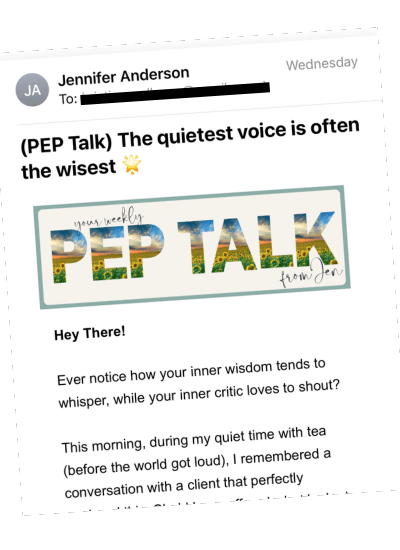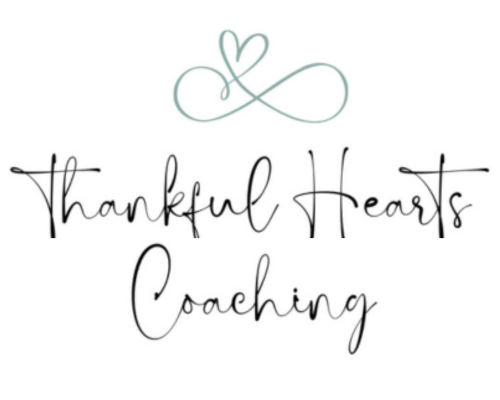Written By Jennifer Anderson
The Power of Accountability: How Support Creates Consistency

Self-discipline often conjures images of a lone warrior, battling through tasks without any support. However, the reality is quite the contrary. Rather than a solo venture, developing true self-discipline can be significantly bolstered by external support—be it through a coach, a group, or an accountability partner. This broader approach not only demystifies self-discipline but also introduces a communal aspect to personal development.
How Accountability Strengthens Self-Discipline
My own journey to becoming a certified life coach made this abundantly clear. The training program required us to coach fellow students, creating a dual role where we practiced guiding others while also exposing our vulnerabilities. This structure made sure we showed up not just for ourselves but for our peers, especially during those nerve-wracking, growth-centric moments. The presence of others relying on me transformed my perspective on self-discipline; it was no longer about pushing through alone but about being reliable in uncomfortable situations.
Consider a common scenario: the sudden flurry of house cleaning before guests arrive. It's easy to postpone chores when we're only accountable to ourselves. However, the imminent arrival of visitors propels us into action. This situation illustrates how accountability can enhance discipline—by shifting the focus from self-imposed obligations to responsibilities we have towards others.
The Power of Group Accountability and Collective Momentum
Accountability partnerships embody this principle neatly. Such partnerships are formed through a mutual agreement to support each other in achieving specific goals. These goals don't necessarily have to align; the crux of the relationship is regular check-ins, ideally weekly. The method is straightforward: break tasks into daily actions to avoid last-minute rushes before meeting your accountability partner. This system not only fosters discipline but also cultivates a rhythm of consistent progress.
Why Accountability Partners Matter More Than Willpower
While it might seem tempting to choose an accountability partner over professional coaching to save costs, selecting the right partner is crucial. The ideal person should be supportive and constructive rather than judgmental or dismissive. For instance, if my goal was to cut down on sweets, choosing my husband as my accountability partner might strain our relationship, especially if resistance turns into conflict. Instead, turning to a professional like a health coach or a dietitian—someone whose advice I am inclined to respect due to their expertise and my financial investment—would likely yield better results.
For those who prefer a broader support network, joining a mastermind group could be beneficial. These groups apply collective pressure to perform, reducing the likelihood of individual members slacking off. Moreover, when challenges arise, the group can collaborate to devise solutions, leveraging diverse perspectives for better outcomes. Blissful Besties is an example of such group.
What if there was a virtual community with tools, accountability, and safe support?
That’s exactly what I created Blissful Besties for!
AND I'm sharing a free 7-day trial ⬇️

Choosing the Right Accountability Support
Some might find that individual needs or new ventures require more tailored guidance, making one-on-one coaching or small group coaching appealing options. While more expensive due to the intensive time commitment from the coach, one-on-one coaching offers deep, personalized engagement. Conversely, group coaching provides a balance, offering both the personal touch of professional guidance and the communal benefits of peer support at a more accessible price point.
Whatever method you choose, the essence of accountability in fostering discipline remains the same. It's about creating a framework where the expectations of others motivate you to adhere to your commitments, pushing you to not only meet but exceed your own standards of self-discipline.
For those intrigued by the concept of accountability coaching or interested in finding an accountability ally, I invite you to stay in my world. My weekly PEP Talk email is where I share ongoing encouragement and let you know first about free and paid workshops, new offers, and what I'm building next.
You DESERVE a HYPE Woman
Here's your Midweek Moment of Motivation!

PEP TALK Email
A weekly Pep Talk that feels like a hug and a high five. A quick read to remind you that you're doing better than you think. Plus, it's an open line between us. Just hit reply anytime.
And if you already know this kind of support would be a game-changer for you, you're welcome to book a call. It's a no obligation, no expectations session. A chance to see if accountability coaching is the right next step for you.
Sending you blessing and love,
Jen

Jennifer Anderson
Beliefs & Boundaries Specialist
Jen is the heart behind Thankful Hearts Coaching. She helps women slow down, reconnect with themselves, and create a life that feels calm, intentional, and meaningful without needing to overhaul everything. Through graceful guidance, honest conversations, and practical tools, Jen supports women in learning how to listen to their hearts, trust their inner wisdom, and find peace right where they are.
Jen is also the author for the Amazon bestseller "Give Your Yes a Bestie Named No" and a contributing author to several collaborative books, where she shares her message of boundaries, gratitude, and living aligned with what truly matters. You can learn more about her work at ThankfulHeartsCoaching.com.





